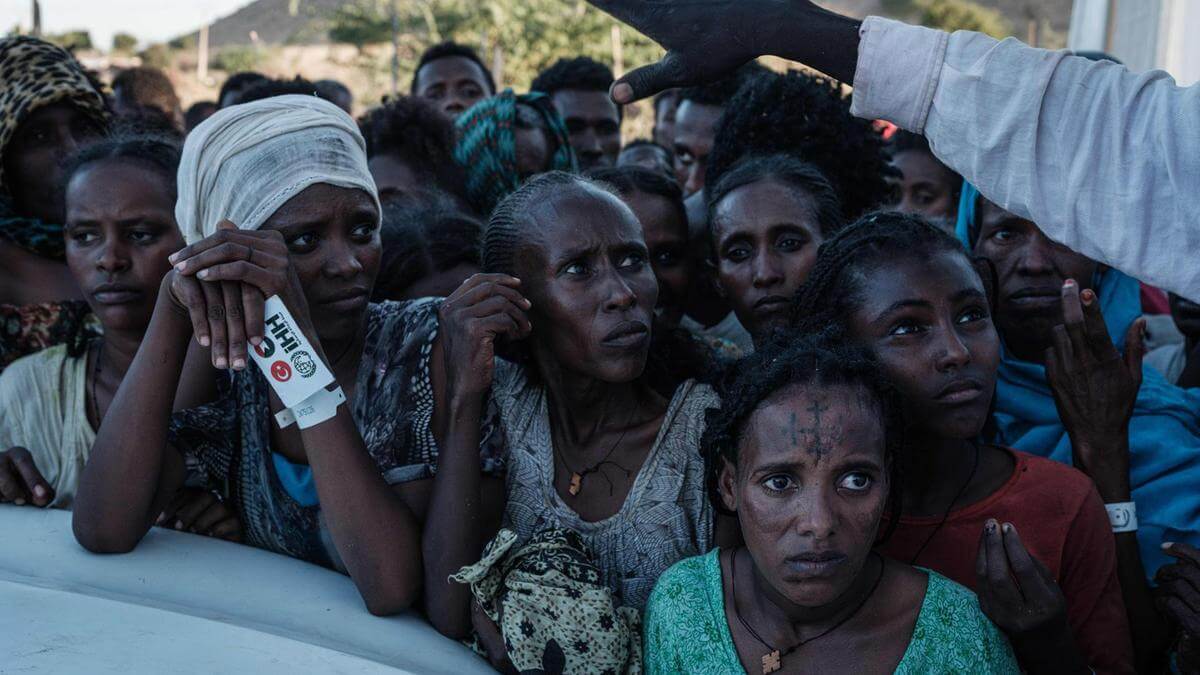Ethiopian President Abiy Ahmed’s administration continues to deal with the fallout from months of internal strife caused by tensions and conflicts with the Tigrayan, Amharic, and Oromo communities, depicting the struggles of a government attempting to create unity in a country with over 80 ethnic groups.
Last week, the United Nations’ High Commissioner for Human Rights, Michele Bachelet, reported that continued fighting in north, central, and southern Tigray has led to several “violations of international humanitarian law and human rights law” through the “deliberate targeting of civilians, extrajudicial killings, and widespread lootings”. Although the government insists that the Tigray People’s Liberation Front (TPLF) is behind these attacks, she said that Amhara and Tigrayan militias, as well as government security forces, were all responsible for these acts of violence and that both Amharas and Tigrayans have been targeted.
Also last week, it was reported that over 200 people were killed in the Metekel zone of Benishangul-Gumuz, which lies in the Amhara region in the west of the country. This followed similar incidents in September and October. Although PM Abiy in response deployed federal troops who killed 42 armed militants who were held responsible for what the leader described as a “massacre”, over 40,000 people from the community have already been displaced due to months of conflict.
Although it is not clear who perpetrated the attack, the government has been attempting to subdue the militant group OLF-Shane, which killed 32 people and set fire to over 20 houses in an attack in November as well. In that incident, ver 60 armed militants targeted the Amharas, the country’s second-biggest ethnic group, in the West Wollega Zone of the Oromia region; Amnesty International estimated that the true death toll was at least 54 people. OLF-Shane purports to fight for the rights of Oromos, Ethiopia’s largest ethnic group.
Furthermore, it has been reported by the state-appointed Ethiopian Human Rights Commission (EHRC) that at least 600 civilians have died over the course of November as a result of “door-to-door” raids conducted by Tigrayan soldiers against ethnic Ahmaras and Wolkait.
However, given that PM Ahmed has ordered multiple air strikes and an unrelenting ground offensive, it is likely that the military, too, has inflicted multiple civilian deaths. In fact, Tigrayan forces allege that federal forces have killed civilians and targeted churches and homes.
The Oromo community, too, has suffered greatly at the hands of security forces. In July, violent and intense protests erupted after Oromo singer and activist Hachalu Hundessa was murdered by armed assailants. The protests that followed his deaths resulted in the deaths of over 100 people at the hands of security forces. Furthermore, around 10,000 people were arrested in the Oromia regional state, with many of the leadership and party members of the Oromo Federalist Congress (OFC) among those arrested. Many of them remain in jail or have had their movements severely restricted.
This has drawn claims that the current administration is attempting to silence political opposition ahead of the general elections in June 2021. Lawyers representing the jailed politicians have said that these “politically motivated” moves stand in the way of holding “free and democratic elections”, as “critical voices who represent serious electoral challenges to PM Abiy Ahmed are locked behind bars”. At the same time, opposition parties have said that even if the politicians are released before the election, there may now be insufficient “time for preparations”.
Alongside the various ethnic groups, the constant state of instability in the nation has also affected the 96,000 Eritrean refugees in the country. The United Nations High Commissioner for Refugees (UNHCR) noted earlier this month that an “overwhelming” number of Eritreans in Tigray are being “killed, abducted, and forcibly returned” to Eritrea.
Ethiopia Deals With Fallout From Multiple Parallel Conflicts With Several Ethnic Groups
Alongside the Tigrayan crisis, PM Abiy Ahmed’s administration continues to attempt the difficult task of trying to secure national unity in a country with over 80 ethnic groups.
December 29, 2020

IMAGE SOURCE: YASUYOSHI CHIBA / AFP VIA GETTY IMAGESThe state-appointed Ethiopian Human Rights Commission has reported that at least 600 civilians have died over the course of November as a result of “door-to-door” raids conducted by Tigrayan soldiers against ethnic Ahmaras and Wolkait.
